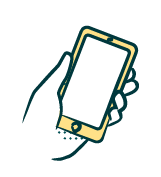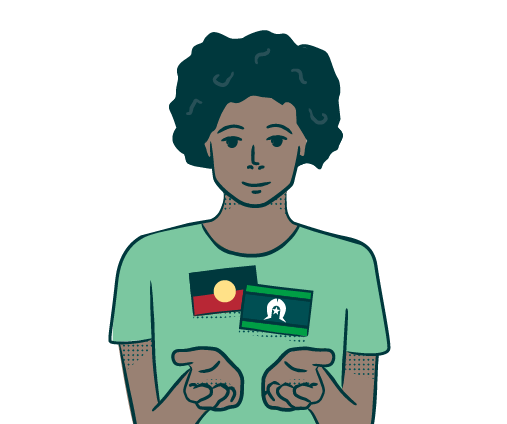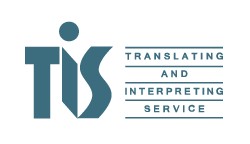Skilling up for health professionals
If you are a GP or a mental health professional, you are often the first point of contact for someone experiencing mental health challenges. You are likely to provide services to people with mental health difficulties even if you work in other areas of health or community services.
This page provides a list of opportunities for you to further develop your skills in mental health, whatever your professional background.
Programs and resources
These services offer a range of modules, e-learning courses, information and tools to support and upskill GPs and mental health professionals.

GP mental health training and education
The General Practice Mental Health Standards Collaboration (GPMHSC) website offers accredited training in mental health skills common in general practice. This includes training in assessment, treatment, planning, and review of issues.
Black Dog Institute’s e-Mental Health in Practice programs
Black Dog Institute’s suite of online training modules, webinars, and resources introduces you to digital programs and tools. They can help you to incorporate digital mental health resources into your practice.
A GP Framework for child mental health assessment (5-12 years)
This Emerging Minds e-learning course focuses on care for children aged 5-12 at risk of or experiencing mental health challenges. It provides training on identification, assessment, care planning, and support.
Practical guide for working with carers of people with a mental illness
Carer Gateway is an Australian Government program providing free services and support for carers. If you care for a family member or friend with disability, a medical condition, mental illness, or who is frail due to age, then Carer Gateway can help you.
iCBT Foundations Training Program (CPD)
This program has been designed – for clinicians, by clinicians - to give an understanding of internet-delivered cognitive behaviour therapy (iCBT) in clinical practice. This program will help clinicians learn about the cognitive behavioural model of emotional wellbeing and strategies that clients can use to manage the symptoms of stress, anxiety, and depression.
Free digital mental health resources
The e-Mental Health in Practice (eMHPrac) website has a range of resources to assist health practitioners from various disciplines. These resources provide information for using digital mental health programs and tools with your clients and patients. This includes guides, brochures, factsheets, webinars and videos. eMHPrac also provides tailored virtual or face-to-face training to health professionals and organisations for free.
Consumer and carer engagement guides
The National Mental Health Commission has guides on improving engagement and participation in healthcare. This could be for people with mental health experiences, their families, and other support people.

Resources for Aboriginal and Torres Strait Islander people
WellMob offers online wellbeing resources made by and for Aboriginal and Torres Strait Islander peoples. These resources include websites, apps, podcasts, videos, social media, and online counselling, with a focus on social and emotional wellbeing.
National Initial Assessment and Referral (IAR) for Mental Healthcare
The IAR is a tool to assist GPs and clinicians with the initial response to requests for mental health assistance in primary care settings. It is designed to provide a consistent national approach in determining the right level of care and functional support for individuals, within the stepped care model.
For more information about the IAR, please visit the Department of Health and Aged Care website.
To arrange training and support, please refer to your local PHN.
Mental Health Professional Online Development Program
The Mental Health Professional Online Development (MHPOD) Program is a national web-based education tool designed to support mental health and broader health professionals in the delivery of mental health care and support. Based on the National Practice Standards for the Mental Health Workforce 2013, MHPOD provides education and training materials including self-directed learning, hour-long modules, MicroLearning, and self-assessment tools.
Australasian ADHD Professionals Association (AADPA)
The Australasian ADHD Professionals Association (AADPA) is dedicated to improving the lives of individuals with ADHD and their families through policy development, advocacy, research, and education. The website offers a range of paid and free resources for members and consumers alike, including webinars, factsheets, comprehensive guidance, and the collective shared knowledge to assist a wide range of cross-disciplinary practitioners working in the field of ADHD.
For more information, please visit aadpa.com.au
headspace
headspace is the primary national platform for provision of services to young people aged 12-25 experiencing, or at risk, of mild to moderate mental illness. Through headspace, you can access research summaries and information on the prevalence, onset, risk factors, assessment, and treatment of common mental health issues in young people. The site also includes clinical practice guidelines and printable fact sheets that can be shared with young people and their support networks, including family and friends. You can also find published studies of treatment and prevention strategies for mental health and substance use problems in young people.
For more information, please visit headspace.
Orygen
Orygen is Australia’s world leading youth mental health organisation, providing clinical services, research, knowledge translation and policy activities locally, nationally and internationally. Orygen provides advice and guidance in the development of evidence-based practice and mental health service models, national leadership in youth mental health research design and delivery, and workforce development and support. Orygen has a dedicated multidisciplinary workforce development team that supports all professionals working with young people, including clinical mental health, education professionals and schools, community and volunteer organisations, peer workforces and any other services working to support young people.
For more information, visit the Orygen website.
Mental Health Professionals’ Network
The Mental Health Professionals’ Network has been funded by the Australian Government Department of Health, Disability and Ageing to strengthen the primary health workforce by improving referral pathways and practitioner expertise through the promotion of multidisciplinary practice and collaborative care.
Visit the MHPN website.

